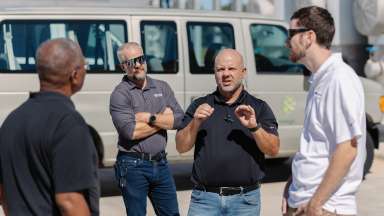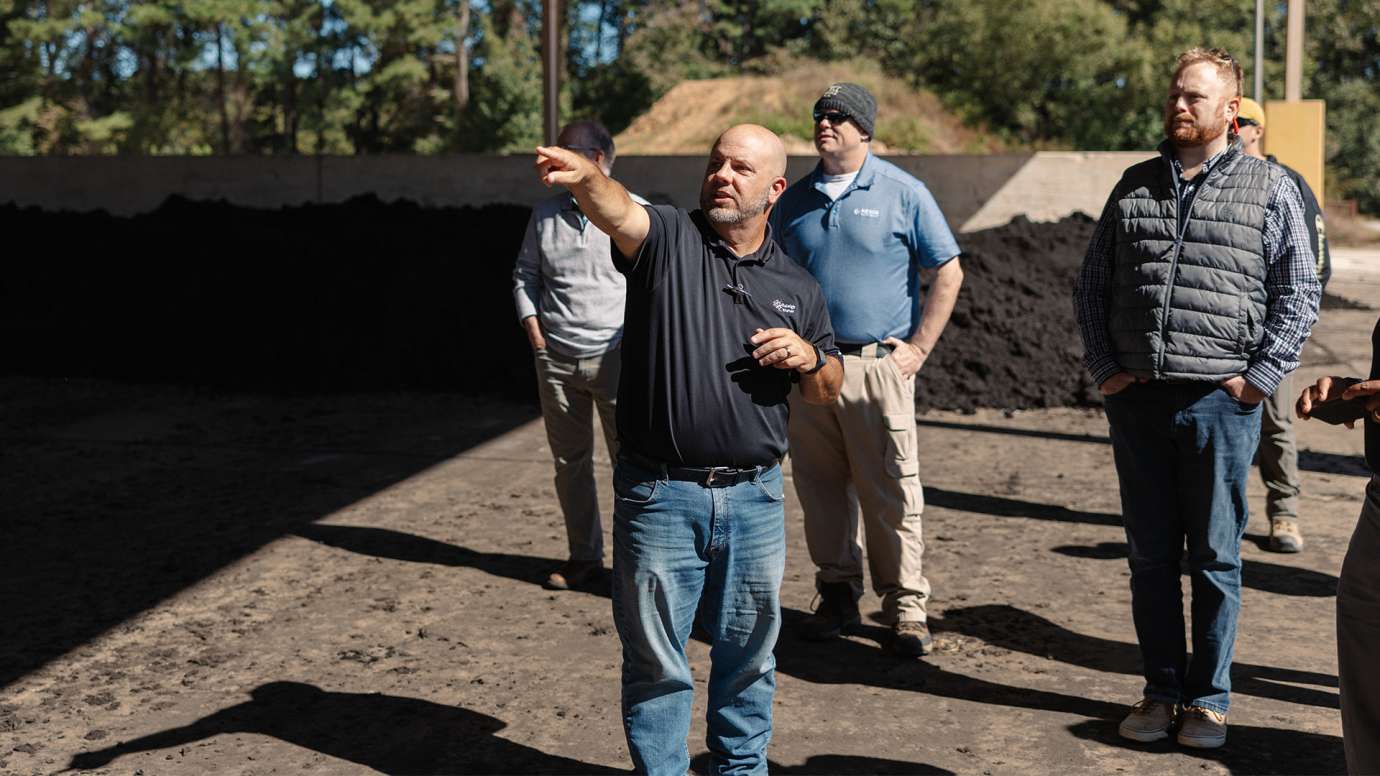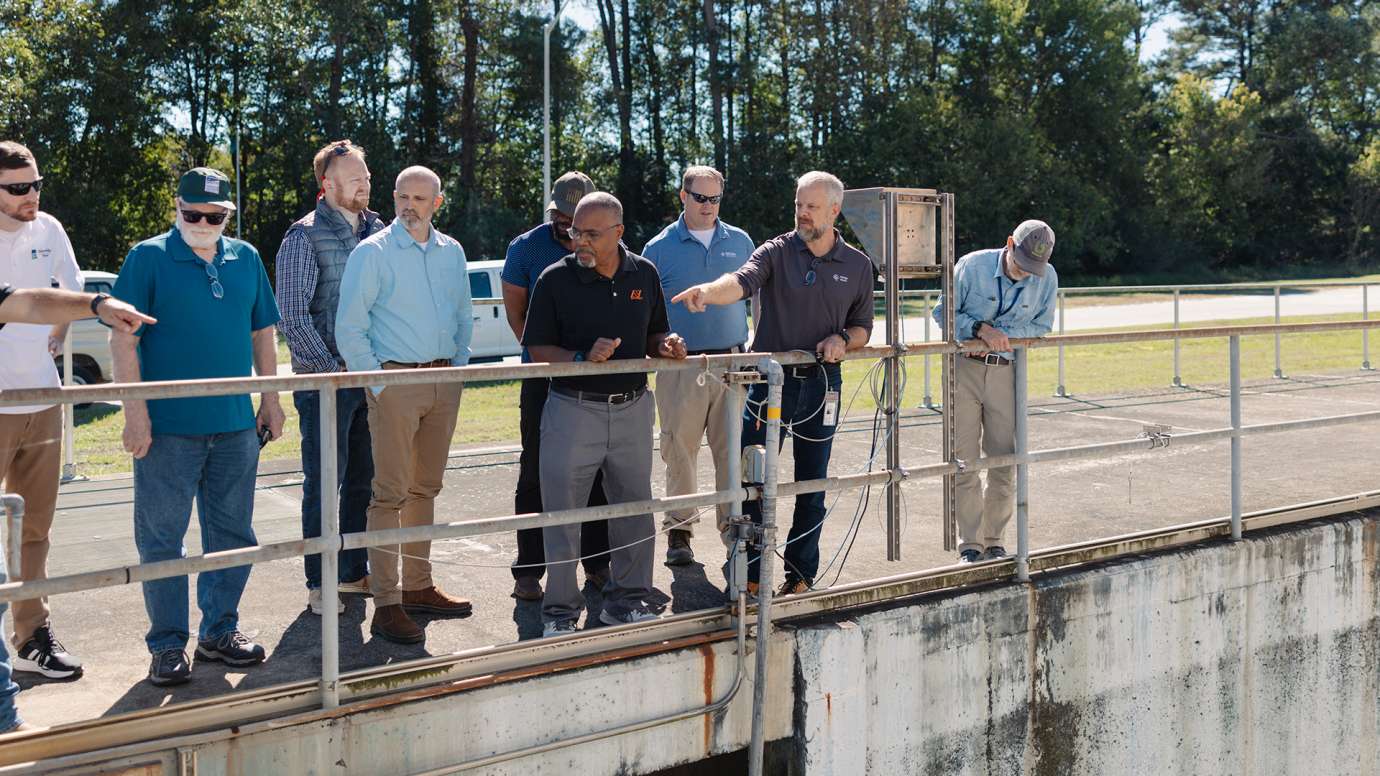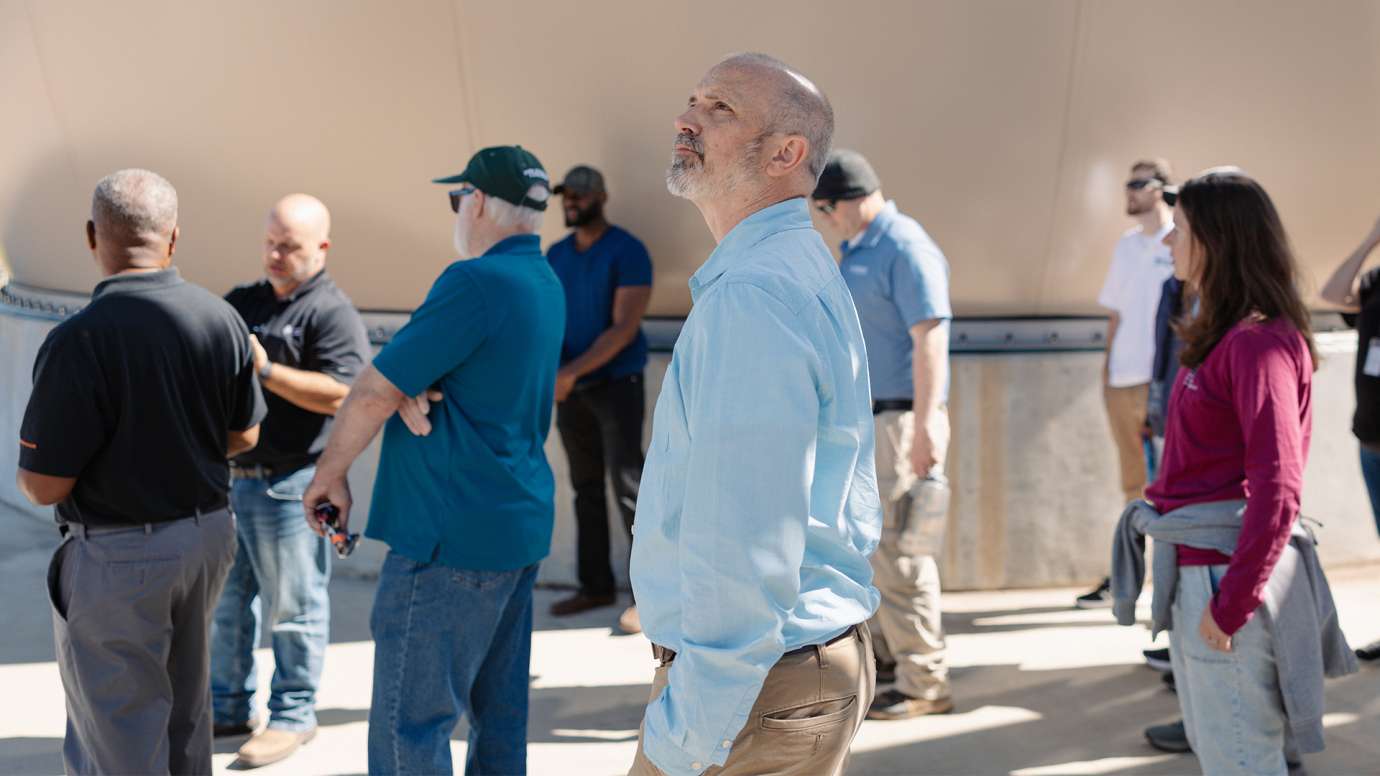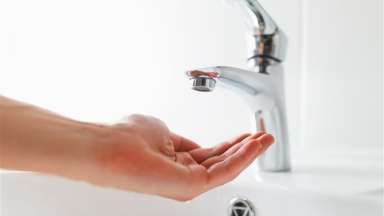On a crisp autumn day, a group of 18 water professionals gathered for a tour of the Raleigh Water Neuse River Resource Recovery Facility. The tour, organized by the Wake County Water Partnership, explored the future of wastewater management in our community and offered a sneak peak of the Bioenergy Recovery Project. Raleigh is taking a significant step towards a greener future with the implementation of a new wastewater treatment system.
Ed Buchan, Assistant Director of Raleigh Water, welcomed the group with a brief overview of the operation.
"This facility is more than just a building; it's a vital lifeline for our community,” Buchan explained. “Providing essential services that we often take for granted.”
Bioenergy Recovery Project
Nathan Howell, the plant operations superintendent, then led the tour, providing valuable insights into the operations and processes. As he guided the group through the facility, Howell shared his enthusiasm for the newly constructed Bioenergy Recovery Project.
"Think about the possibilities when we repurpose waste,” said Howell. “This project is a shining example of how innovation can turn a challenge into an opportunity, benefiting both our community and the planet.”
Coming Together
The tour included representatives from Apex, Cary, Holly Springs, Morrisville, Garner, as well as private water providers. They gathered to explore how wastewater can be repurposed. The tour offered a firsthand look at this innovative project, highlighting its potential benefits for the environment and local communities.
Nancy N. Daly, Water Resources Program Manager for Wake County Government, expressed her satisfaction with the tour's outcome.
"This event highlighted the importance of viewing water as a holistic resource,” said Daly. “By understanding the interconnectedness of these different water sources, we can make decisions that benefit our community and our environment."
The tour ended with a visit to one of Wake County's groundwater monitoring wells, where an expert explained how this vast network keeps tabs on the health of our underground water supply. The group learned how data collected from these wells helps scientists understand the interconnectedness of groundwater, surface water, and wastewater, a crucial aspect of the One Water approach.
The Bioenergy Recovery Project will help the City meet its Community Climate Action Plan goals. The project will reduce biosolid volume by 48 percent and cut the City’s carbon footprint by 11 percent.
Stay tuned for more details as the project nears its launch!
